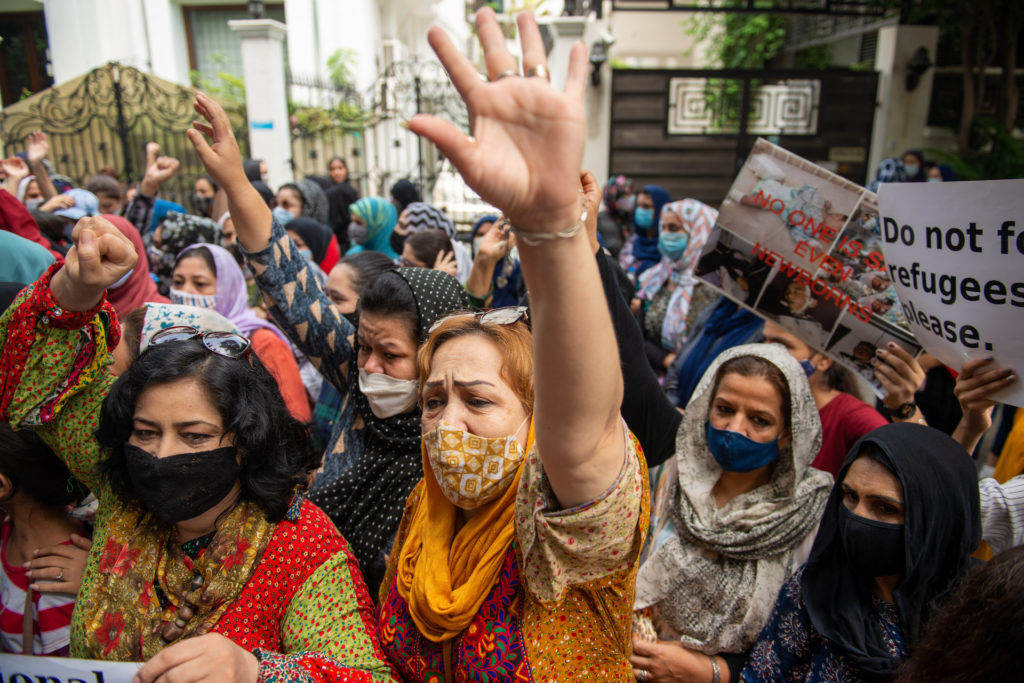Afghan Women Demanding to Be Heard with #DontTouchMyClothes
Since the U.S. withdrew from Afghanistan, the threat against Afghan women and their rights dangerously increased. However, women are speaking out against Taliban rule with #donttouchmyclothes.
In 2016, Lema Afzal created an Instagram account spotlighting traditional Afghan dresses adorned with hand-crafted beading and vibrant red, purple, and green colors. The 25-year old activist took inspiration from her relatives’ weddings to showcase more of her family’s heritage and traditions. Traditionally, wedding guests perform a dance called the attan, which provides a beautiful scene of Afghan dresses twirling and opening up like a colorful flower to the beats of a tabla drum.
Afzal, a student at studying KU Leuven for her master’s in business communications, looked to her father to collect dresses from Afghanistan for more inspiration. At the age of four, Afzal and her family immigrated to Belgium from her home in Kabul to flee the rise of Taliban rule. Afzal found Afghan dresses as a way to reconnect to her culture and identity and decided to share them with the world.
Now, Afghan women everywhere are posting photos of themselves in traditional dresses to protest against Taliban rule. Current Taliban rule has subjected women to danger and dismissal as they are stripped of their basic rights to having high-status positions, freedom to education, power over their clothing, etc. Dr. Bahar Jalali, a former professor at the American University of Afghanistan, initiated the social media protest and coined the hashtag #dontouchmyclothes. Dr. Jalali took inspiration from Afzal’s famous Instagram posts and decided to share her thoughts on Taliban rule on Afghanistan’s Independence Day.
This is Afghan culture. I am wearing a traditional Afghan dress. #AfghanistanCulture pic.twitter.com/DrRzgyXPvm
— Dr. Bahar Jalali (@RoxanaBahar1) September 12, 2021
There are different Afghan dresses, as the nation is full of diverse ethnicities such as Turkmen, Uzbek, and many more. Each dress is made by hand and upcycled from previous dresses to create a unique masterpiece for each woman. Every woman has her own piece to represent her history, family roots, and strength.
Afghan women tell the Taliban #DoNotTouchMyClothes.
— Brut America (@brutamerica) October 11, 2021
Meet the historian who started the protest with just one picture.
(via @WatchAdoreMedia) pic.twitter.com/SfqOLK51Id
Afzal explains, ”There is not one Afghan dress but different types of dresses for region and ethnicity…I am happy that we are getting the world’s attention that Afghanistan has such beautiful clothing. This is our own culture.”
In a world where there is so much uncertainty and darkness, especially for Afghan women, inspiring people like Afzal and Dr. Jalali bring hope for this new generation of technology and community.

Content Writer





